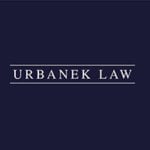-
Overview
-
What is the main legislation relating to real estate ownership?
-
Have any significant new laws which materially impact real estate investors and lenders come into force in the past year or are there any major anticipated new laws which are expected to materially impact them in the near future?
-
How is ownership of real estate proved and are ownership records available for public inspection?
-
Are there any restrictions on who can own real estate, including ownership by any foreign entities?
-
What types of proprietary interests in real estate can be created?
-
Is ownership of real estate and the buildings on it separate?
-
What are common ownership structures for ownership of commercial real estate?
-
What is the usual legal due diligence process that is undertaken when acquiring commercial real estate?
-
What legal issues (if any) are outside the scope of the usual legal due diligence process on an acquisition of real estate?
-
What is the usual process for transfer of real estate, and when does liability pass to the buyer?
-
Is it common for real estate transfers to be effected by way of share transfer as well as asset transfer?
-
On the sale of freehold interests in land does the benefit of any occupational leases and income derived from such lettings automatically transfer to the buyer?
-
What common rights, interests and burdens can be created or attach over real estate and how are these protected?
-
Are split legal and beneficial ownership of real estate (i.e. trust structures) recognised?
-
Is public disclosure of the ultimate beneficial owners of real estate required?
-
What are the main taxes associated with real estate ownership and transfer of real estate?
-
What are common terms of commercial leases and are there regulatory controls on the terms of leases?
-
What remedies are commonly available for landlords in the event of a tenant breach of a commercial lease?
-
How are use, planning and zoning restrictions on real estate regulated?
-
Who can be liable for environmental contamination on real estate?
-
Are buildings legally required to have their energy performance assessed and in what (if any) situations do minimum energy performance levels need to be met?
-
Is expropriation of real estate possible?
-
Is it possible to create mortgages over real estate and how are these protected and enforced?
-
Are there material registration costs associated with the creation of mortgages over real estate?
-
Is it possible to create a trust structure for mortgage security over real estate?
China: Real Estate
This country-specific Q&A provides an overview of Real Estate laws and regulations applicable in China.





























